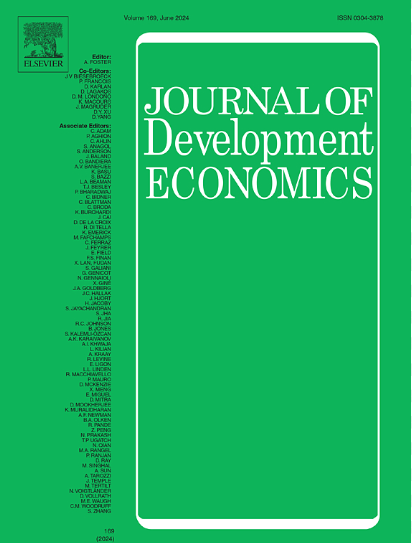巴西的贿选、政客选择与公共产品供给
IF 4.6
1区 经济学
Q1 ECONOMICS
引用次数: 0
摘要
我研究了贿选的后果,贿选被定义为诱使外人以欺诈手段将他们的选民登记转移到不同的司法管辖区,以换取私人利益的行为。具体而言,我探讨了巴西2007年选民重新登记改革的影响,该改革旨在遏制选民购买。利用分配给改革的市政当局的目标不连续性,我研究了市长选举、公共支出和社会经济结果对选民购买的外生障碍的反应。改革导致了政治竞争的增加,积极的政治家选择。受过良好教育的合格候选人更有可能进入并赢得市长选举,而这些候选人不太可能属于庇护主义政党。这些政治变化导致医疗保健和学校支出的增加,而这些项目对贫困选民来说是非常重要的。这些增加的支出带来了更好的健康结果,包括降低婴儿死亡率,以及更好的教育投入,包括更多的学校、教师和学生入学率。对潜在机制的探索证实,积极的政治家选择和选民组成的变化是结果的关键驱动因素。我还表明,无意的剥夺公民权和在职者的声誉效应并没有推动结果。本文章由计算机程序翻译,如有差异,请以英文原文为准。
Voter-buying, politician selection, and public good provision in Brazil
I study the consequences of voter-buying, defined as the act of inducing outsiders to fraudulently transfer their voter registration across jurisdictions in exchange for private benefits. Specifically, I explore the effects of Brazil’s 2007 voter re-registration reform which was intended to curb voter-buying. Exploiting a discontinuity in the targeting of municipalities assigned to the reform, I examine the response of mayoral elections, public expenditures and socioeconomic outcomes to the imposition of exogenous barriers to voter-buying. The reform led to an increase in political competition, and positive politician selection. Educated and qualified candidates who are less likely to belong to clientelist parties are more likely to enter and win mayoral elections. These political changes induce a rise in healthcare and school expenditures — programmatic public goods salient to poor voters. These increased expenditures result in better health outcomes, including reduced infant mortality, and better schooling inputs, including more schools, teachers, and student enrollment. Exploration of underlying mechanisms confirms that positive politician selection and changes to the electorate composition are the key drivers of the results. I also show that unintended disenfranchisement and incumbent reputation effects are not driving the results.
求助全文
通过发布文献求助,成功后即可免费获取论文全文。
去求助
来源期刊

Journal of Development Economics
ECONOMICS-
CiteScore
8.30
自引率
4.00%
发文量
126
审稿时长
72 days
期刊介绍:
The Journal of Development Economics publishes papers relating to all aspects of economic development - from immediate policy concerns to structural problems of underdevelopment. The emphasis is on quantitative or analytical work, which is relevant as well as intellectually stimulating.
 求助内容:
求助内容: 应助结果提醒方式:
应助结果提醒方式:


